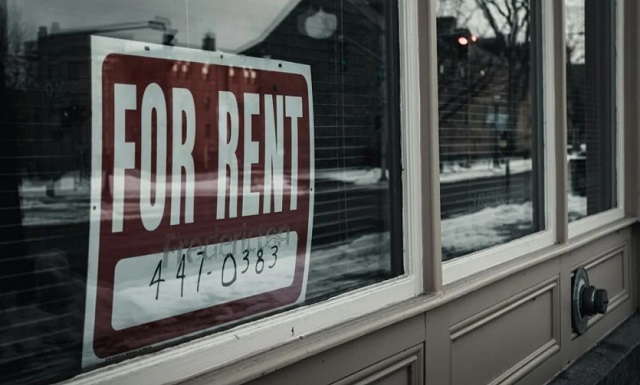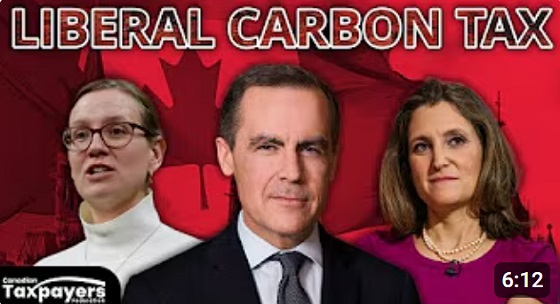Business
Fear of US recession drives global market turmoil

From The Center Square
“This is a preview of the world markets without Donald J. Trump in the White House. None of this happens if Trump is in. Kamala and the markets don’t go together,” Trump said
The U.S. stock market took a major dive Monday as Japan saw its worst stock market day since 1987, raising recessing fears and drawing fresh criticism for President Joe Biden and Vice President Kamala Harris.
As of Monday morning, the Dow had dropped 900 points and the Nasdaq a whopping 4%, which experts say is fueled by a fear of a coming recession.
Federal jobs data released on Friday showed far fewer jobs were created than expected.
Overseas conflicts between Russia and Ukraine, possibly imminent all-out war between Iran and Israel and the ongoing threat of a Chinese invasion of Taiwan are also constant stability concerns for global markets.
Former President Donald Trump released a flurry of posts blaming Harris, the presumptive Democratic nominee, for the market downturn, labeling it the “Kamala crash.”
“This is a preview of the world markets without Donald J. Trump in the White House. None of this happens if Trump is in. Kamala and the markets don’t go together,” Trump said in a post online Monday morning. “She’ll destroy the markets. She’s in power now and look at what is happening. One week of the fake media saying better polls and you get a market crash.”
In 2020, Trump predicted that if Biden were to win reelection, the stock market would “crash.”
“Of course there is a massive market downturn,” Trump said. “Kamala is even worse than Crooked Joe. Markets will NEVER accept the Radical Left Lunatic that DESTROYED San Francisco and California, as a whole. Next move, THE GREAT DEPRESSION OF 2024! You can’t play games with MARKETS. KAMALA CRASH!!!”
U.S. Sen. J.D. Vance, R-Ohio, Trump’s pick for Vice President, warned that the economic situation could get much worse if it is not handled well.
“This moment could set off a real economic calamity around the globe,” Vance wrote no X, formerly known as Twitter. “It requires steady leadership–the kind President Trump delivered for four years. Kamala Harris is too afraid to answer media questions and cannot lead us in these troubled times.”
Renowned investor Warren Buffett of Berkshire Hathaway said over the weekend that he had sold over half his stock in Apple, which subsequently saw a 5% decrease in its stock price.
“He is clearly expecting a correction of some kind or otherwise simply cannot see better investments than Treasury bills,” Billionaire Elon Musk wrote on X Sunday in response to the news. “The Fed needs to drop rates. They have been foolish not to have done so already.”
2025 Federal Election
MEI-Ipsos poll: 56 per cent of Canadians support increasing access to non-governmental healthcare providers

-
Most believe private providers can deliver services faster than government-run hospitals
-
77 per cent of Canadians say their provincial healthcare system is too bureaucratic
Canadians are increasingly in favour of breaking the government monopoly over health care by opening the door to independent providers and cross-border treatments, an MEI-Ipsos poll has revealed.
“Canadians from coast to coast are signalling they want to see more involvement from independent health providers in our health system,” explains Emmanuelle B. Faubert, economist at the MEI. “They understand that universal access doesn’t mean government-run, and that consistent failures to deliver timely care in government hospitals are a feature of the current system.”
Support for independent health care is on the rise, with 56 per cent of respondents in favour of allowing patients to access services provided by independent health entrepreneurs. Only 25 per cent oppose this.
In Quebec, support is especially strong, with 68 per cent endorsing this change.
Favourable views of accessing care through a mixed system are widespread, with three quarters of respondents stating that private entrepreneurs can deliver healthcare services faster than hospitals managed by the government. This is up four percentage points from last year.
Countries like Sweden and France combine universal coverage with independent providers and deliver faster, more accessible care. When informed about how these health systems run, nearly two in three Canadians favour adopting such models.
The poll also finds that 73 per cent of Canadians support allowing patients to receive treatment abroad with provincial coverage, which could help reduce long wait times at home.
Common in the European Union, this “cross-border directive” enabled 450,000 patients to access elective surgeries in 2022, with costs reimbursed as if they had been treated in their home country.
There’s a growing consensus that provincial healthcare systems are overly bureaucratic, with the strongest agreement in Alberta, B.C., and Quebec. The proportion of Canadians holding this view has risen by 16 percentage points since 2020.
Nor do Canadians see more spending as being a solution: over half say the current pace of healthcare spending in their province is unsustainable.
“Governments shouldn’t keep doubling down on what isn’t working. Instead, they should look at what works abroad,” says Ms. Faubert. “Canadians have made it clear they want to shift gears; now it’s up to policymakers to show they’re listening.”
A sample of 1,164 Canadians aged 18 and older was polled between March 24th and March 28th, 2025. The margin of error is ±3.3 percentage points, 19 times out of 20.
The results of the MEI-Ipsos poll are available here.
* * *
The MEI is an independent public policy think tank with offices in Montreal, Ottawa, and Calgary. Through its publications, media appearances, and advisory services to policymakers, the MEI stimulates public policy debate and reforms based on sound economics and entrepreneurship.
2025 Federal Election
POLL: Canadians say industrial carbon tax makes life more expensive

The Canadian Taxpayers Federation released Leger polling showing 70 per cent of Canadians believe businesses pass on most or some of the cost of the industrial carbon tax to consumers. Meanwhile, just nine per cent believe businesses pay most of the cost.
“The poll shows Canadians understand that a carbon tax on business is a carbon tax on Canadians that makes life more expensive,” said Franco Terrazzano, CTF Federal Director. “Only nine per cent of Canadians believe Liberal Leader Mark Carney’s claim that businesses will pay most of the cost of his carbon tax.
“Canadians have a simple question for Carney: How much will your carbon tax cost?”
The federal government currently imposes an industrial carbon tax on oil and gas, steel and fertilizer businesses, among others.
Carney said he would “improve and tighten” the industrial carbon tax and extend the “framework to 2035.” Carney also said that by “changing the carbon tax … We are making the large companies pay for everybody.”
The Leger poll asked Canadians who they think ultimately pays the industrial carbon tax. Results of the poll show:
- 44 per cent say most of the cost is passed on to consumers
- 26 per cent say some of the cost is passed on to consumers
- 9 per cent say businesses pay most of the cost
- 21 per cent don’t know
Among those decided on the issue, 89 per cent of Canadians say businesses pass on most or some of the cost to consumers.
“Carbon taxes on refineries make gas more expensive, carbon taxes on utilities make home heating more expensive and carbon taxes on fertilizer plants increase costs for farmers and that makes groceries more expensive,” Terrazzano said. “A carbon tax on business will push our entrepreneurs to cut production in Canada and increase production south of the border and that means higher prices and fewer jobs for Canadians.”
-

 Alberta2 days ago
Alberta2 days agoMade in Alberta! Province makes it easier to support local products with Buy Local program
-

 2025 Federal Election2 days ago
2025 Federal Election2 days agoCSIS Warned Beijing Would Brand Conservatives as Trumpian. Now Carney’s Campaign Is Doing It.
-

 2025 Federal Election2 days ago
2025 Federal Election2 days agoInside Buttongate: How the Liberal Swamp Tried to Smear the Conservative Movement — and Got Exposed
-

 Bruce Dowbiggin1 day ago
Bruce Dowbiggin1 day agoIs HNIC Ready For The Winnipeg Jets To Be Canada’s Heroes?
-

 Dr. Robert Malone1 day ago
Dr. Robert Malone1 day agoThe West Texas Measles Outbreak as a Societal and Political Mirror
-

 COVID-191 day ago
COVID-191 day agoCOVID virus, vaccines are driving explosion in cancer, billionaire scientist tells Tucker Carlson
-

 Health1 day ago
Health1 day agoHorrific and Deadly Effects of Antidepressants
-

 illegal immigration1 day ago
illegal immigration1 day agoDespite court rulings, the Trump Administration shows no interest in helping Abrego Garcia return to the U.S.








